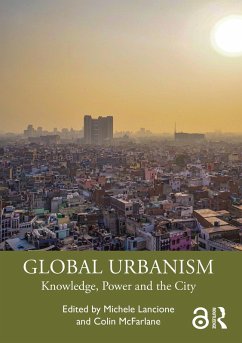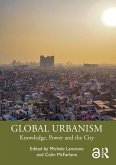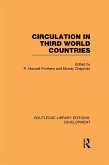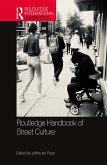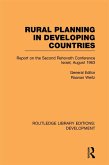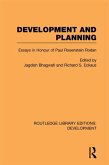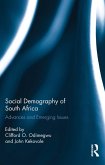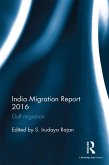Global Urbanism (eBook, PDF)
Knowledge, Power and the City
Redaktion: Lancione, Michele; Mcfarlane, Colin
38,95 €
38,95 €
inkl. MwSt.
Sofort per Download lieferbar

19 °P sammeln
38,95 €
Als Download kaufen

38,95 €
inkl. MwSt.
Sofort per Download lieferbar

19 °P sammeln
Jetzt verschenken
Alle Infos zum eBook verschenken
38,95 €
inkl. MwSt.
Sofort per Download lieferbar
Alle Infos zum eBook verschenken

19 °P sammeln
Global Urbanism (eBook, PDF)
Knowledge, Power and the City
Redaktion: Lancione, Michele; Mcfarlane, Colin
- Format: PDF
- Merkliste
- Auf die Merkliste
- Bewerten Bewerten
- Teilen
- Produkt teilen
- Produkterinnerung
- Produkterinnerung

Bitte loggen Sie sich zunächst in Ihr Kundenkonto ein oder registrieren Sie sich bei
bücher.de, um das eBook-Abo tolino select nutzen zu können.
Hier können Sie sich einloggen
Hier können Sie sich einloggen
Sie sind bereits eingeloggt. Klicken Sie auf 2. tolino select Abo, um fortzufahren.

Bitte loggen Sie sich zunächst in Ihr Kundenkonto ein oder registrieren Sie sich bei bücher.de, um das eBook-Abo tolino select nutzen zu können.
Global Urbanism is an experimental examination of how urban scholars and activists make sense of, and act upon, the foundational relationship between the 'global' and the 'urban'. It is primarily intended for scholars and graduate students in geography, sociology, planning, anthropology, and the field of urban studies.
- Geräte: PC
- ohne Kopierschutz
- eBook Hilfe
- Größe: 23.06MB
Andere Kunden interessierten sich auch für
![Global Urbanism (eBook, ePUB) Global Urbanism (eBook, ePUB)]() Global Urbanism (eBook, ePUB)38,95 €
Global Urbanism (eBook, ePUB)38,95 €![Circulation in Third World Countries (eBook, PDF) Circulation in Third World Countries (eBook, PDF)]() Circulation in Third World Countries (eBook, PDF)47,95 €
Circulation in Third World Countries (eBook, PDF)47,95 €![Routledge Handbook of Street Culture (eBook, PDF) Routledge Handbook of Street Culture (eBook, PDF)]() Routledge Handbook of Street Culture (eBook, PDF)45,95 €
Routledge Handbook of Street Culture (eBook, PDF)45,95 €![Rural Planning in Developing Countries (eBook, PDF) Rural Planning in Developing Countries (eBook, PDF)]() Rural Planning in Developing Countries (eBook, PDF)48,95 €
Rural Planning in Developing Countries (eBook, PDF)48,95 €![Development and Planning (eBook, PDF) Development and Planning (eBook, PDF)]() Development and Planning (eBook, PDF)48,95 €
Development and Planning (eBook, PDF)48,95 €![Social Demography of South Africa (eBook, PDF) Social Demography of South Africa (eBook, PDF)]() Social Demography of South Africa (eBook, PDF)44,95 €
Social Demography of South Africa (eBook, PDF)44,95 €![India Migration Report 2016 (eBook, PDF) India Migration Report 2016 (eBook, PDF)]() India Migration Report 2016 (eBook, PDF)44,95 €
India Migration Report 2016 (eBook, PDF)44,95 €-
-
-
Global Urbanism is an experimental examination of how urban scholars and activists make sense of, and act upon, the foundational relationship between the 'global' and the 'urban'. It is primarily intended for scholars and graduate students in geography, sociology, planning, anthropology, and the field of urban studies.
Dieser Download kann aus rechtlichen Gründen nur mit Rechnungsadresse in A, B, BG, CY, CZ, D, DK, EW, E, FIN, F, GR, HR, H, IRL, I, LT, L, LR, M, NL, PL, P, R, S, SLO, SK ausgeliefert werden.
Produktdetails
- Produktdetails
- Verlag: Taylor & Francis eBooks
- Seitenzahl: 370
- Erscheinungstermin: 21. Juni 2021
- Englisch
- ISBN-13: 9780429521775
- Artikelnr.: 61353545
- Verlag: Taylor & Francis eBooks
- Seitenzahl: 370
- Erscheinungstermin: 21. Juni 2021
- Englisch
- ISBN-13: 9780429521775
- Artikelnr.: 61353545
- Herstellerkennzeichnung Die Herstellerinformationen sind derzeit nicht verfügbar.
Michele Lancione is Professor of Geography at the Polytechnic of Turin, Italy, and Visiting Professor of Urban Studies at the University of Sheffield, United Kingdom. He is a member of the Common Front for Housing Rights (Bucharest), co-founder and editor of the Radical Housing Journal and corresponding editor at IJURR. His work focuses on radical forms of inhabitation and housing struggles (through a five-year European Research Council project) and the politics of life at the margins in the contemporary urban. Colin McFarlane is Professor of Geography at Durham University, United Kingdom. His current work is on the politics and experience of urban densities (through a European Research Council project), the relationship between urban waste and life in the city, thinking the city through the idea of the fragment and the potentials for urban equalities (through a Global Challenges Research Fund project led by University College London).
1. Introduction 1. Navigating the global-urban - Lancione and McFarlane 2.
Rethinking global urbanisms 2. Thinking urban grammars: An interview with
Ash Amin 3. Decentering global urbanism: An interview with Ananya Roy 4.
Hinterlands of the Capitalocene 5. Making space for queer desire in global
urbanism 6. Seeing like an Italian city: questioning global urbanism from
an "in-between space" in Turin 7. Theorising from where? Reflections on
De-centring Global (Southern) Urbanism 8. Postsocialist Cities: A
Comparative Urbanism Research Agenda 9. Beyond the Noosphere? Northern
England's 'Left Behind' Urbanism 10. Footnote urbanism: the missing East in
(not so) global urbanism 11. Comparative urbanism and global urban studies:
theorising the urban 3. Everyday global urbanisms 12. Global Urbanism
Inside/Out: Thinking Through Jakarta 13. Tiwa's morning 14. "Out there,
over the hills, on the other side of the tracks": a horizon of the global
urban 15. Constructing the Southeast Asian Ascent: Global Vertical
Urbanisms of Brick and Sand 16. Nairobi City, Streets and Stories: Young
lives stay in place while going global through digital stages 17.
Rethinking global urbanism from a 'fripe' marketplace in Tunis 18. Liminal
spaces and resistance in Mexico City: towards an everyday global urbanism
19. Death and the City. Necrological Notes from Kinshasa Filip De Boeck 20.
Pathways toward a dialectical urbanism: thinking with the contingencies of
crisis, care and Capitalism 21. Global self-urbanism: self-organisation
amidst the regulatory crisis and uneven urban citizenship 4. Governing
global urbanisms 22. Unlocking political potentialities 23. Climate Changed
Urbanism? 24. The global urban condition and politics of thermal
metabolics: the chilling prospect of killer heat 25. On the deployment of
scientific knowledge for the new urbanism of the Anthropocene 26. Global
cities and bioeconomy of health innovation 27. Hacking the Urban Code:
Notes on Durational Imagination in City-Making 28. Global Urbanism: urban
governance innovation in/for a world of cities 29. Corridor Urbanism 30.
Beyond-the-network Urbanism: Everyday Infrastructures in States of Mutation
31. Still construction and already ruin 32. The Migration of Spaces:
Monumental Urbanism Beyond Materiality 33. Land as situated
spatio-histories: A dialogue with Global Urbanism 5. Contesting global
urbanism 34. Women organising, advocacy and Indian cities in-between
informal dwelling and informal economies: and interview with SEWA's Renana
Jhabvala 35. From a Neapolitan perspective, reaching out beyond prevailing
cultural models: an interview with Emma Ferulano 36. Urban struggles and
theorising from Eastern European cities: a collective interview with Ana
Vilenica, Ioana Florea, Veda Popocivi and Zsuzsi Pósfai 37. Planning,
community spaces and youth urban futures: from Accra, in conversation with
Victoria Okoye and Yussif Larry Aminu 38. A Counter-Dominant Global
Urbanism? Experiments from Lebanon 39. Living in the city beyond housing:
urbanism of the commons
Rethinking global urbanisms 2. Thinking urban grammars: An interview with
Ash Amin 3. Decentering global urbanism: An interview with Ananya Roy 4.
Hinterlands of the Capitalocene 5. Making space for queer desire in global
urbanism 6. Seeing like an Italian city: questioning global urbanism from
an "in-between space" in Turin 7. Theorising from where? Reflections on
De-centring Global (Southern) Urbanism 8. Postsocialist Cities: A
Comparative Urbanism Research Agenda 9. Beyond the Noosphere? Northern
England's 'Left Behind' Urbanism 10. Footnote urbanism: the missing East in
(not so) global urbanism 11. Comparative urbanism and global urban studies:
theorising the urban 3. Everyday global urbanisms 12. Global Urbanism
Inside/Out: Thinking Through Jakarta 13. Tiwa's morning 14. "Out there,
over the hills, on the other side of the tracks": a horizon of the global
urban 15. Constructing the Southeast Asian Ascent: Global Vertical
Urbanisms of Brick and Sand 16. Nairobi City, Streets and Stories: Young
lives stay in place while going global through digital stages 17.
Rethinking global urbanism from a 'fripe' marketplace in Tunis 18. Liminal
spaces and resistance in Mexico City: towards an everyday global urbanism
19. Death and the City. Necrological Notes from Kinshasa Filip De Boeck 20.
Pathways toward a dialectical urbanism: thinking with the contingencies of
crisis, care and Capitalism 21. Global self-urbanism: self-organisation
amidst the regulatory crisis and uneven urban citizenship 4. Governing
global urbanisms 22. Unlocking political potentialities 23. Climate Changed
Urbanism? 24. The global urban condition and politics of thermal
metabolics: the chilling prospect of killer heat 25. On the deployment of
scientific knowledge for the new urbanism of the Anthropocene 26. Global
cities and bioeconomy of health innovation 27. Hacking the Urban Code:
Notes on Durational Imagination in City-Making 28. Global Urbanism: urban
governance innovation in/for a world of cities 29. Corridor Urbanism 30.
Beyond-the-network Urbanism: Everyday Infrastructures in States of Mutation
31. Still construction and already ruin 32. The Migration of Spaces:
Monumental Urbanism Beyond Materiality 33. Land as situated
spatio-histories: A dialogue with Global Urbanism 5. Contesting global
urbanism 34. Women organising, advocacy and Indian cities in-between
informal dwelling and informal economies: and interview with SEWA's Renana
Jhabvala 35. From a Neapolitan perspective, reaching out beyond prevailing
cultural models: an interview with Emma Ferulano 36. Urban struggles and
theorising from Eastern European cities: a collective interview with Ana
Vilenica, Ioana Florea, Veda Popocivi and Zsuzsi Pósfai 37. Planning,
community spaces and youth urban futures: from Accra, in conversation with
Victoria Okoye and Yussif Larry Aminu 38. A Counter-Dominant Global
Urbanism? Experiments from Lebanon 39. Living in the city beyond housing:
urbanism of the commons
1. Introduction 1. Navigating the global-urban - Lancione and McFarlane 2.
Rethinking global urbanisms 2. Thinking urban grammars: An interview with
Ash Amin 3. Decentering global urbanism: An interview with Ananya Roy 4.
Hinterlands of the Capitalocene 5. Making space for queer desire in global
urbanism 6. Seeing like an Italian city: questioning global urbanism from
an "in-between space" in Turin 7. Theorising from where? Reflections on
De-centring Global (Southern) Urbanism 8. Postsocialist Cities: A
Comparative Urbanism Research Agenda 9. Beyond the Noosphere? Northern
England's 'Left Behind' Urbanism 10. Footnote urbanism: the missing East in
(not so) global urbanism 11. Comparative urbanism and global urban studies:
theorising the urban 3. Everyday global urbanisms 12. Global Urbanism
Inside/Out: Thinking Through Jakarta 13. Tiwa's morning 14. "Out there,
over the hills, on the other side of the tracks": a horizon of the global
urban 15. Constructing the Southeast Asian Ascent: Global Vertical
Urbanisms of Brick and Sand 16. Nairobi City, Streets and Stories: Young
lives stay in place while going global through digital stages 17.
Rethinking global urbanism from a 'fripe' marketplace in Tunis 18. Liminal
spaces and resistance in Mexico City: towards an everyday global urbanism
19. Death and the City. Necrological Notes from Kinshasa Filip De Boeck 20.
Pathways toward a dialectical urbanism: thinking with the contingencies of
crisis, care and Capitalism 21. Global self-urbanism: self-organisation
amidst the regulatory crisis and uneven urban citizenship 4. Governing
global urbanisms 22. Unlocking political potentialities 23. Climate Changed
Urbanism? 24. The global urban condition and politics of thermal
metabolics: the chilling prospect of killer heat 25. On the deployment of
scientific knowledge for the new urbanism of the Anthropocene 26. Global
cities and bioeconomy of health innovation 27. Hacking the Urban Code:
Notes on Durational Imagination in City-Making 28. Global Urbanism: urban
governance innovation in/for a world of cities 29. Corridor Urbanism 30.
Beyond-the-network Urbanism: Everyday Infrastructures in States of Mutation
31. Still construction and already ruin 32. The Migration of Spaces:
Monumental Urbanism Beyond Materiality 33. Land as situated
spatio-histories: A dialogue with Global Urbanism 5. Contesting global
urbanism 34. Women organising, advocacy and Indian cities in-between
informal dwelling and informal economies: and interview with SEWA's Renana
Jhabvala 35. From a Neapolitan perspective, reaching out beyond prevailing
cultural models: an interview with Emma Ferulano 36. Urban struggles and
theorising from Eastern European cities: a collective interview with Ana
Vilenica, Ioana Florea, Veda Popocivi and Zsuzsi Pósfai 37. Planning,
community spaces and youth urban futures: from Accra, in conversation with
Victoria Okoye and Yussif Larry Aminu 38. A Counter-Dominant Global
Urbanism? Experiments from Lebanon 39. Living in the city beyond housing:
urbanism of the commons
Rethinking global urbanisms 2. Thinking urban grammars: An interview with
Ash Amin 3. Decentering global urbanism: An interview with Ananya Roy 4.
Hinterlands of the Capitalocene 5. Making space for queer desire in global
urbanism 6. Seeing like an Italian city: questioning global urbanism from
an "in-between space" in Turin 7. Theorising from where? Reflections on
De-centring Global (Southern) Urbanism 8. Postsocialist Cities: A
Comparative Urbanism Research Agenda 9. Beyond the Noosphere? Northern
England's 'Left Behind' Urbanism 10. Footnote urbanism: the missing East in
(not so) global urbanism 11. Comparative urbanism and global urban studies:
theorising the urban 3. Everyday global urbanisms 12. Global Urbanism
Inside/Out: Thinking Through Jakarta 13. Tiwa's morning 14. "Out there,
over the hills, on the other side of the tracks": a horizon of the global
urban 15. Constructing the Southeast Asian Ascent: Global Vertical
Urbanisms of Brick and Sand 16. Nairobi City, Streets and Stories: Young
lives stay in place while going global through digital stages 17.
Rethinking global urbanism from a 'fripe' marketplace in Tunis 18. Liminal
spaces and resistance in Mexico City: towards an everyday global urbanism
19. Death and the City. Necrological Notes from Kinshasa Filip De Boeck 20.
Pathways toward a dialectical urbanism: thinking with the contingencies of
crisis, care and Capitalism 21. Global self-urbanism: self-organisation
amidst the regulatory crisis and uneven urban citizenship 4. Governing
global urbanisms 22. Unlocking political potentialities 23. Climate Changed
Urbanism? 24. The global urban condition and politics of thermal
metabolics: the chilling prospect of killer heat 25. On the deployment of
scientific knowledge for the new urbanism of the Anthropocene 26. Global
cities and bioeconomy of health innovation 27. Hacking the Urban Code:
Notes on Durational Imagination in City-Making 28. Global Urbanism: urban
governance innovation in/for a world of cities 29. Corridor Urbanism 30.
Beyond-the-network Urbanism: Everyday Infrastructures in States of Mutation
31. Still construction and already ruin 32. The Migration of Spaces:
Monumental Urbanism Beyond Materiality 33. Land as situated
spatio-histories: A dialogue with Global Urbanism 5. Contesting global
urbanism 34. Women organising, advocacy and Indian cities in-between
informal dwelling and informal economies: and interview with SEWA's Renana
Jhabvala 35. From a Neapolitan perspective, reaching out beyond prevailing
cultural models: an interview with Emma Ferulano 36. Urban struggles and
theorising from Eastern European cities: a collective interview with Ana
Vilenica, Ioana Florea, Veda Popocivi and Zsuzsi Pósfai 37. Planning,
community spaces and youth urban futures: from Accra, in conversation with
Victoria Okoye and Yussif Larry Aminu 38. A Counter-Dominant Global
Urbanism? Experiments from Lebanon 39. Living in the city beyond housing:
urbanism of the commons
